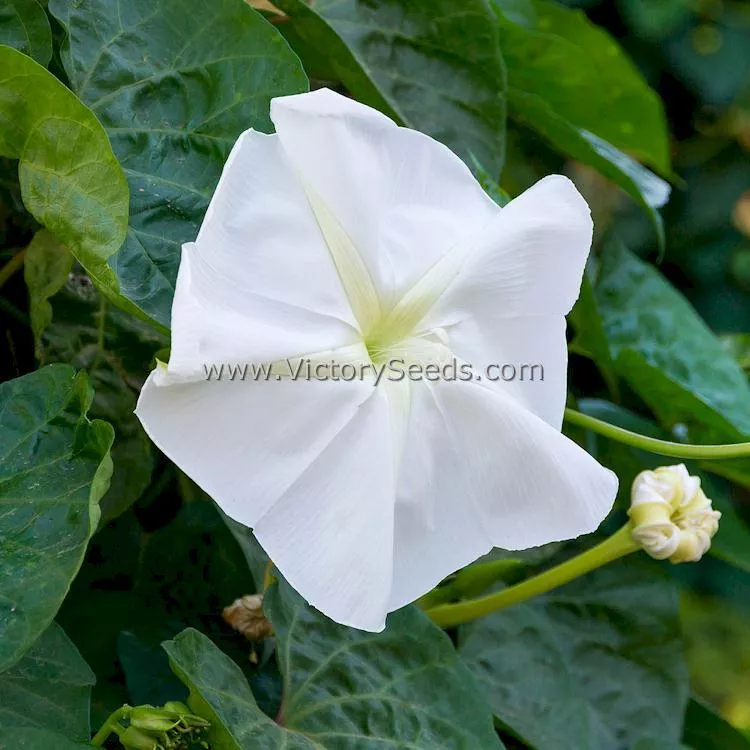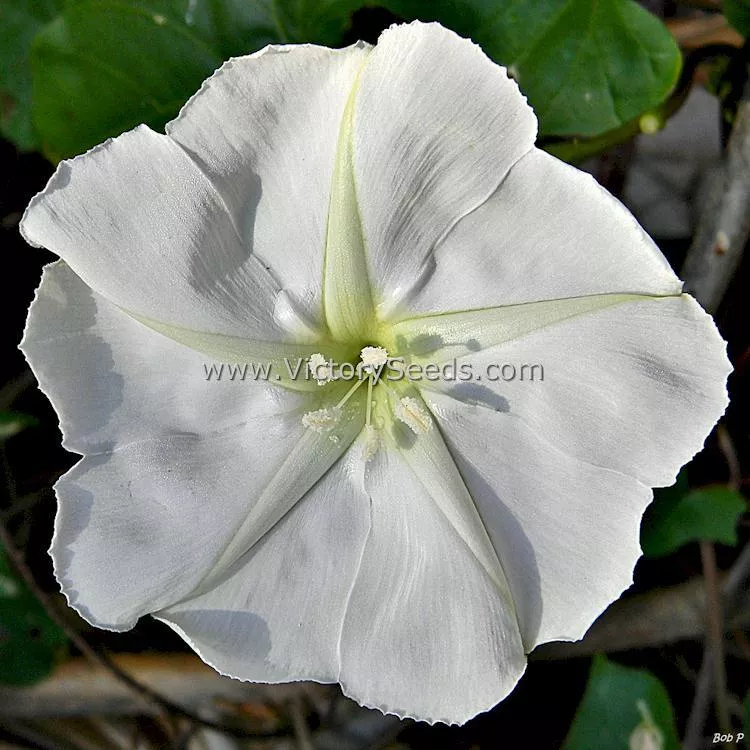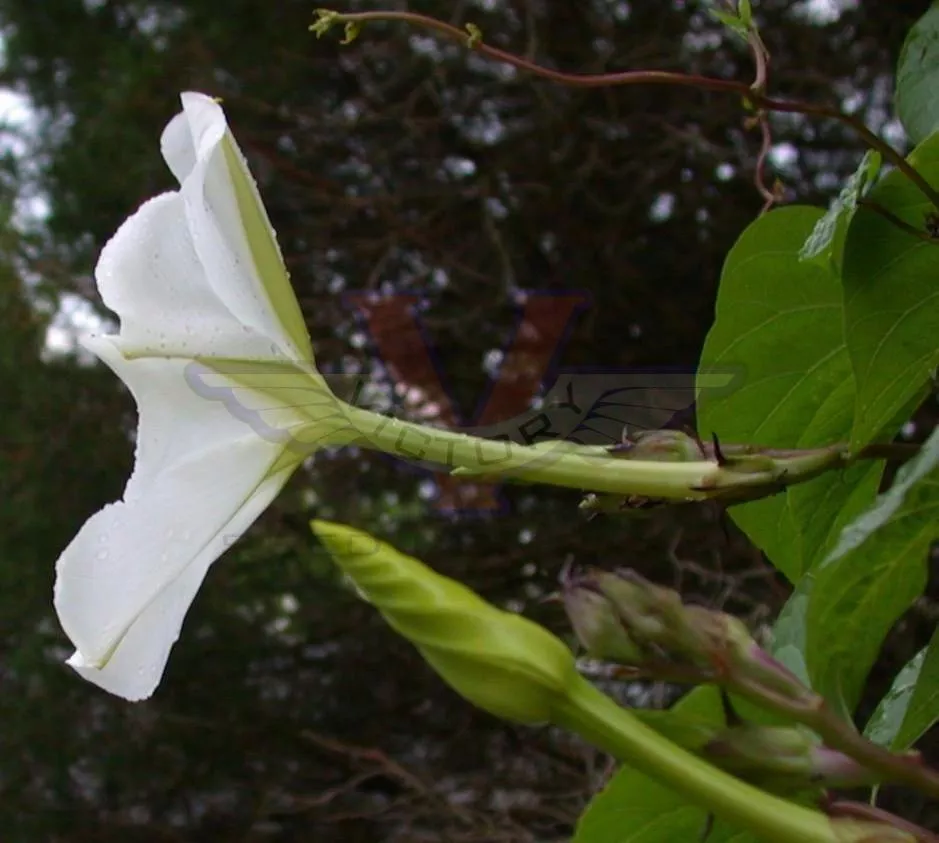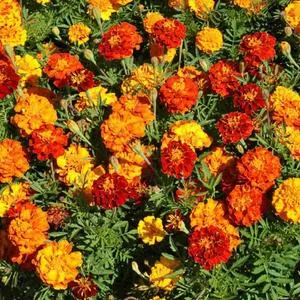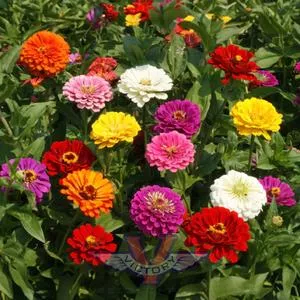


Moonflower
Ipomoea alba
Price: $3.45
SKU: 1002071Moonflower is a very old-fashioned vining plant that is closely related to morning glories and sweet potatoes. It is presumed to have originated in the tropic region of the New World, it grows as a tender perennial in USDA zones 8 to 11 but is grown as an annual in most parts of North America.
Its lightly scented flowers are night-blooming, opening up at dusk and fully closing by noon the following day. The vines grow from eight to ten feet producing white flowers that can be up to six inches across. Either sow along a structure like a wire fence, or provide a trellis or other material on which the vines can climb.
Although growing 'Moonflower' from seed is easy, they sometimes have a hard seed coat. Nick the seed coat with a sharp knife tip or rub them on a piece of sandpaper to improve germination results. As a tropical plant, 'Moonflower' needs at least six hours of full sun daily and is temperature sensitive. Either wait to sow your seeds until the soil has warmed to at least 65ºF and after all danger of frost has passed, or start them indoors in pots to be transplanted later.
Its lightly scented flowers are night-blooming, opening up at dusk and fully closing by noon the following day. The vines grow from eight to ten feet producing white flowers that can be up to six inches across. Either sow along a structure like a wire fence, or provide a trellis or other material on which the vines can climb.
Although growing 'Moonflower' from seed is easy, they sometimes have a hard seed coat. Nick the seed coat with a sharp knife tip or rub them on a piece of sandpaper to improve germination results. As a tropical plant, 'Moonflower' needs at least six hours of full sun daily and is temperature sensitive. Either wait to sow your seeds until the soil has warmed to at least 65ºF and after all danger of frost has passed, or start them indoors in pots to be transplanted later.
Genetic Classification: Open Pollinated
By ordering this seed, you are agreeing that it is allowed in your area or that you will not be cultivating it in a state where it is deemed a noxious weed. Since regulations change often, the following list may not be conclusive. Please check with your state and local laws to verify that you can grow this in your area. It may be classified as a "noxious weed" in your state and cultivation prohibited.
Informational Resources:
- "The PLANTS Database," USDA Natural Resources Conservation Service.
Notes:
There was common lore describing hallucinogenic properties possessed by 'Moonflower' seeds claiming that they contained lysergic acid, a naturally occurring alkaloid similar to the chemical compound of the hallucinogenic drug, LSD. Studies in the 1970s proved this legend to be myth.
Customer Reviews:
Do you have experience with this one? 📝 📣 Write a review!
No reviews have been posted yet.

